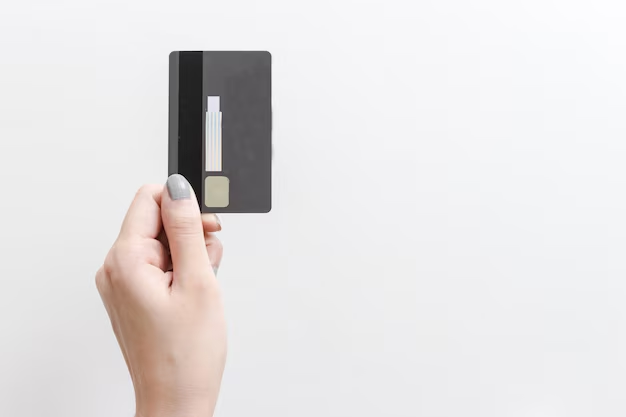Effortlessly Cancel Your Discover Credit Card: A Complete Guide
Discovering how to cancel a credit card can feel like navigating a labyrinth, but it doesn't have to be complicated. Whether you're seeking to trim your wallet’s weight or simplify your finances, knowing how to cancel your Discover credit card efficiently is key. This comprehensive guide will provide you with everything you need to manage this process smoothly and confidently. Let’s unlock the steps to ensure you make an informed decision while maintaining control over your credit health.
🔍 Understanding When to Cancel Your Credit Card
Why Consider Cancelling Your Discover Credit Card?
Though having a credit card can offer benefits such as rewards, cashback, and building credit, there are several reasons you might consider cancellation:
- High interest rates or fees: If the interest or annual fees outweigh the benefits.
- Low usage: The card is rarely used, and you want to consolidate accounts.
- Simplification: To streamline your financial portfolio, reducing the number of accounts to manage.
Before making a decision, weigh these against the potential downsides of closing a credit account.
Potential Impacts on Your Credit Score
Cancelling a credit card can affect your credit score in several ways:
- Credit Utilization Ratio: Closing a card reduces your available credit, potentially increasing your utilization ratio, which can have a negative impact on your score.
- Length of Credit History: Shutting down an older account can reduce the average age of your accounts.
- Credit Mix: A varied mix of credit (credit cards, loans, etc.) can positively impact your score, so cancelling could detract from this.
Weigh these effects carefully and consider speaking with a financial advisor if you need tailored advice.
🛠️ Step-by-Step Guide to Cancelling Your Discover Credit Card
Step 1: Prepare Your Account
Before you initiate the cancellation:
- Review your account for pending balances. Ensure you’ve cleared any outstanding balances, including pending transactions or fees.
- Redeem any rewards. Ensure you redeem cashback or rewards to avoid losing them after cancellation.
- Download recent statements. Keep a record of your transaction history for personal accounting and future reference.
Step 2: Contact Discover’s Customer Service
To officially start the cancellation process, you will need to contact Discover:
- Call Discover customer service at the number on the back of your credit card or visit their official website for assistance. You can also access customer service via the mobile app.
- Request a cancellation explicitly. Communicate clearly that you intend to cancel your card. Be prepared for any retention offers they may present—these are attempts to keep you as a customer.
Tip: It can be helpful to have your account information handy during this call.
Step 3: Confirm Cancellation
Once the process is initiated:
- Ask for written confirmation of your account closure from Discover. This could be received via email or physical mail.
- Monitor your credit report. Check to ensure the card is reported as closed on your credit report after a couple of billing cycles.
Step 4: Dispose of Your Card Responsibly
Once you receive confirmation:
- Destroy your card by cutting it into pieces, ensuring the card number and security code are unreadable.
🗂️ Exploring Alternative Strategies
Cancelling isn't the only option. Consider these alternatives:
Downgrade Your Card
If you want to maintain the credit line but eliminate fees, ask Discover if you can downgrade to a no-fee card. This option keeps your credit line open, preserving your credit score components such as utilization and history.
Negotiate Your Rates
If high interest rates are the issue, contact customer service to negotiate lower rates or a new payment plan that better fits your current situation.
Utilize Balance Transfers
Consider transferring your balance to a card with a lower interest rate or other favorable terms. While this option doesn’t eliminate debt, it can make repayment more manageable.
🔑 Key Considerations Before Cancelling
- Evaluate your overall financial health and objectives.
- Check rewards program rules to avoid forfeiting points or cashback.
- Understand the terms and conditions, especially concerning any ongoing disputes or transactions.
These considerations can help ensure you're making the most informed decision for your financial circumstances.
✍️ FAQs: Navigating Discover Card Closures
Q: Can I cancel my Discover card online?
A: At present, Discover requires you to call their customer service to initiate the cancellation process. The online portal can assist with other services, but card cancellation requires direct human interaction.
Q: Will cancelling my card affect my other Discover accounts?
A: Cancelling one account typically doesn't impact other accounts with Discover, but it’s always good to confirm account standing during your cancellation conversation.
Q: What happens if I have an outstanding balance?
A: You'll need to clear any existing balance on your account before cancellation can be finalized. You’ll continue to receive statements and be responsible for the balance until it's settled.
📌 Handy Summary: Cancelling Your Discover Credit Card
Here’s a quick overview to aid your decision-making process:
- Evaluate why you wish to cancel and weigh the potential impact on your credit score.
- Prepare your account by clearing balances and redeeming rewards.
- Contact Discover’s customer service to process the cancellation.
- Confirm the closure by obtaining written confirmation.
- Explore alternatives like downgrading your card or negotiating better terms.
Implementing these steps thoughtfully will empower you to handle your Discover card cancellation with clarity and precision. It's all about making the best choice to fit your financial future.

Related Topics
- Are Discover Card Accepted Everywhere
- Are Discover Cards Good
- Are Discover Credit Cards Good
- Can Discover Card Be Used Internationally
- Can I Use Discover Credit Card Internationally
- Can I Use My Discover Card At An Atm
- Can I Use My Discover Card Internationally
- Can You Use Discover Card In Europe
- Can You Withdraw Money From Discover Credit Card
- Does Amazon Accept Discover Card
